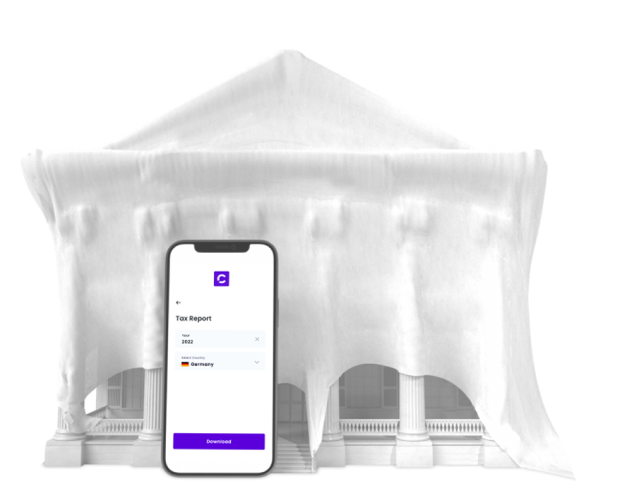How Cy Creek Bank's Portfolios Are
Tax
Optimised
In the Canada, the taxation of cryptocurrencies is governed by the Canada Revenue Agency (CRA). Cryptocurrencies, such as Bitcoin and Ethereum, are treated as property for tax purposes rather than as traditional currency. This means that the taxation of cryptocurrencies is subject to capital gains tax.
When you sell or dispose of your cryptocurrencies and make a profit, it is considered a taxable event. The amount of tax you owe on the profit depends on various factors, including your income tax bracket and the length of time you held the cryptocurrency before selling it.
The capital gains tax rate in the Canada varies depending on your income level and the holding period of the asset. If you held the cryptocurrency for less than a year before selling, it is classified as a short-term capital gain and taxed at your ordinary income tax rate. For individuals with higher incomes, the highest federal income tax rate is currently 37%.
However, if you held the cryptocurrency for more than a year before selling, it is classified as a long-term capital gain. Long-term capital gains are generally subject to lower tax rates. For individuals in the highest tax bracket, the maximum long-term capital gains tax rate is 20%.
Additionally, there may be state-level taxes that apply to cryptocurrency gains, as tax laws can vary from state to state. It is important to consult with a tax professional or accountant familiar with cryptocurrency taxation in your specific state.
To illustrate the tax calculation, let's assume you made a profit of $1,000 from the sale of cryptocurrencies and fall into the 27.5% tax bracket. In this case, you would owe $275 in taxes on that profit.
It is essential to keep accurate records of your cryptocurrency transactions, including the purchase price, sale price, and dates of acquisition and sale. This information will be necessary for calculating your capital gains or losses accurately when filing your tax return.
It is worth noting that tax laws and regulations regarding cryptocurrencies are evolving, and it is important to stay informed about any updates or changes that may impact your tax obligations. Consulting with a tax professional or accountant who specializes in cryptocurrency taxation can provide you with personalized guidance based on your specific situation.
Disclaimer: The above information is provided for informational purposes only and should not be considered as legal or financial advice. Please consult with a qualified tax professional or accountant for guidance on your individual tax situation.
When you sell or dispose of your cryptocurrencies and make a profit, it is considered a taxable event. The amount of tax you owe on the profit depends on various factors, including your income tax bracket and the length of time you held the cryptocurrency before selling it.
The capital gains tax rate in the Canada varies depending on your income level and the holding period of the asset. If you held the cryptocurrency for less than a year before selling, it is classified as a short-term capital gain and taxed at your ordinary income tax rate. For individuals with higher incomes, the highest federal income tax rate is currently 37%.
However, if you held the cryptocurrency for more than a year before selling, it is classified as a long-term capital gain. Long-term capital gains are generally subject to lower tax rates. For individuals in the highest tax bracket, the maximum long-term capital gains tax rate is 20%.
Additionally, there may be state-level taxes that apply to cryptocurrency gains, as tax laws can vary from state to state. It is important to consult with a tax professional or accountant familiar with cryptocurrency taxation in your specific state.
To illustrate the tax calculation, let's assume you made a profit of $1,000 from the sale of cryptocurrencies and fall into the 27.5% tax bracket. In this case, you would owe $275 in taxes on that profit.
It is essential to keep accurate records of your cryptocurrency transactions, including the purchase price, sale price, and dates of acquisition and sale. This information will be necessary for calculating your capital gains or losses accurately when filing your tax return.
It is worth noting that tax laws and regulations regarding cryptocurrencies are evolving, and it is important to stay informed about any updates or changes that may impact your tax obligations. Consulting with a tax professional or accountant who specializes in cryptocurrency taxation can provide you with personalized guidance based on your specific situation.
Disclaimer: The above information is provided for informational purposes only and should not be considered as legal or financial advice. Please consult with a qualified tax professional or accountant for guidance on your individual tax situation.

